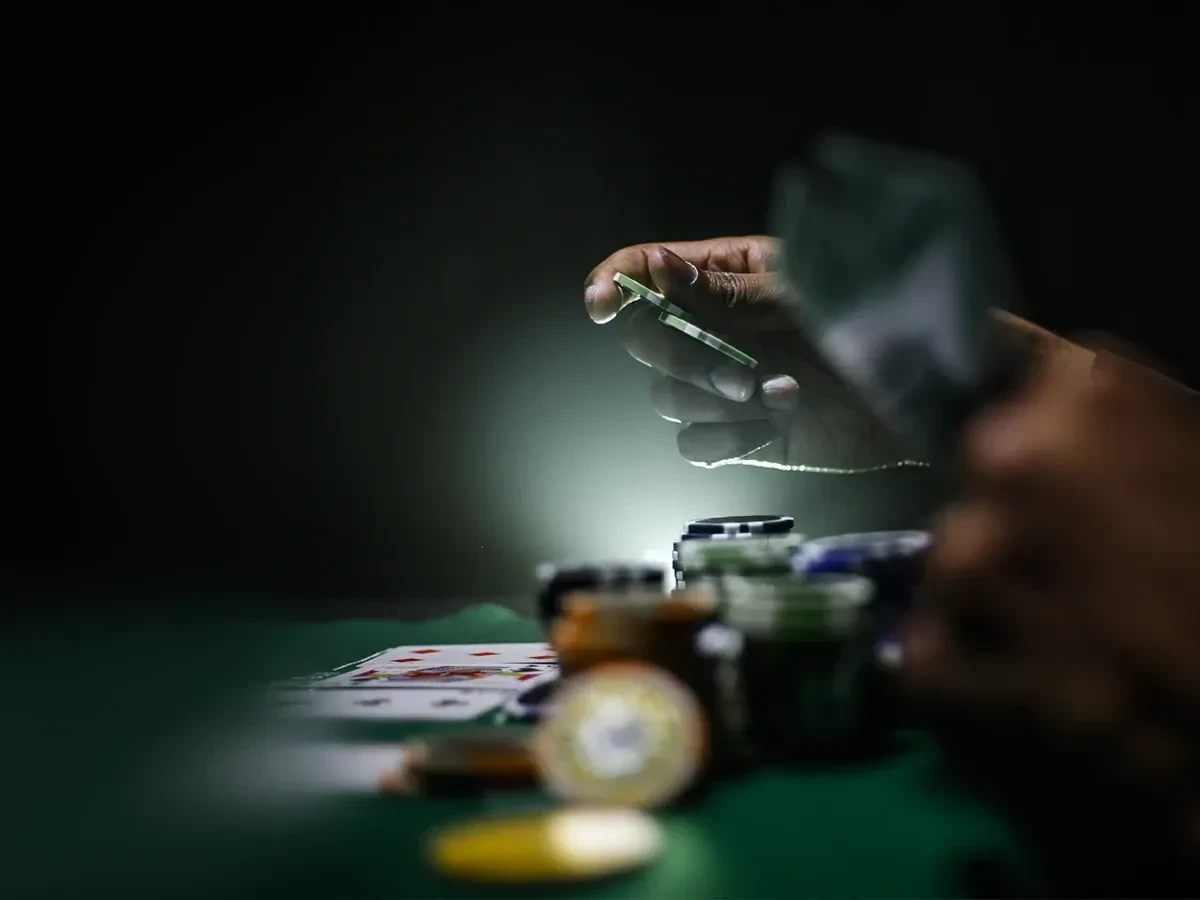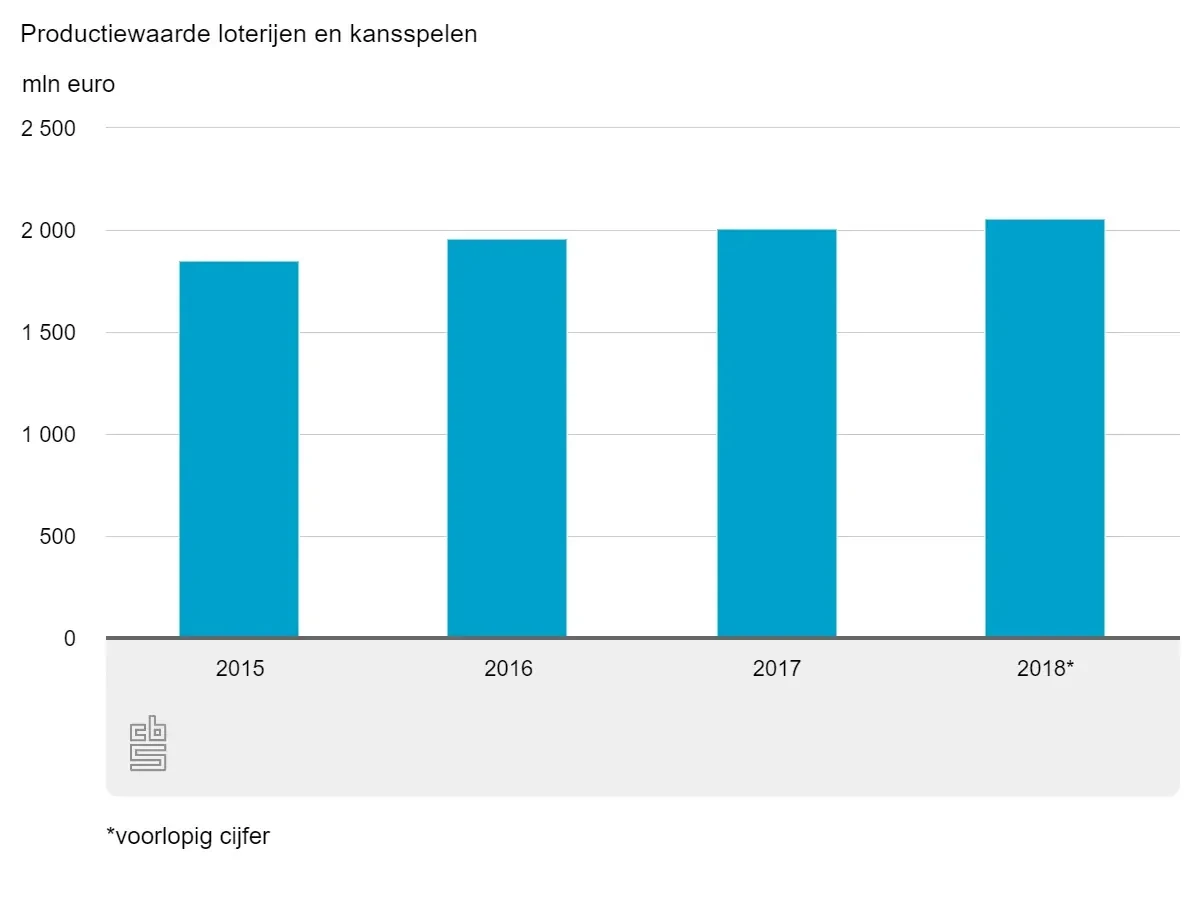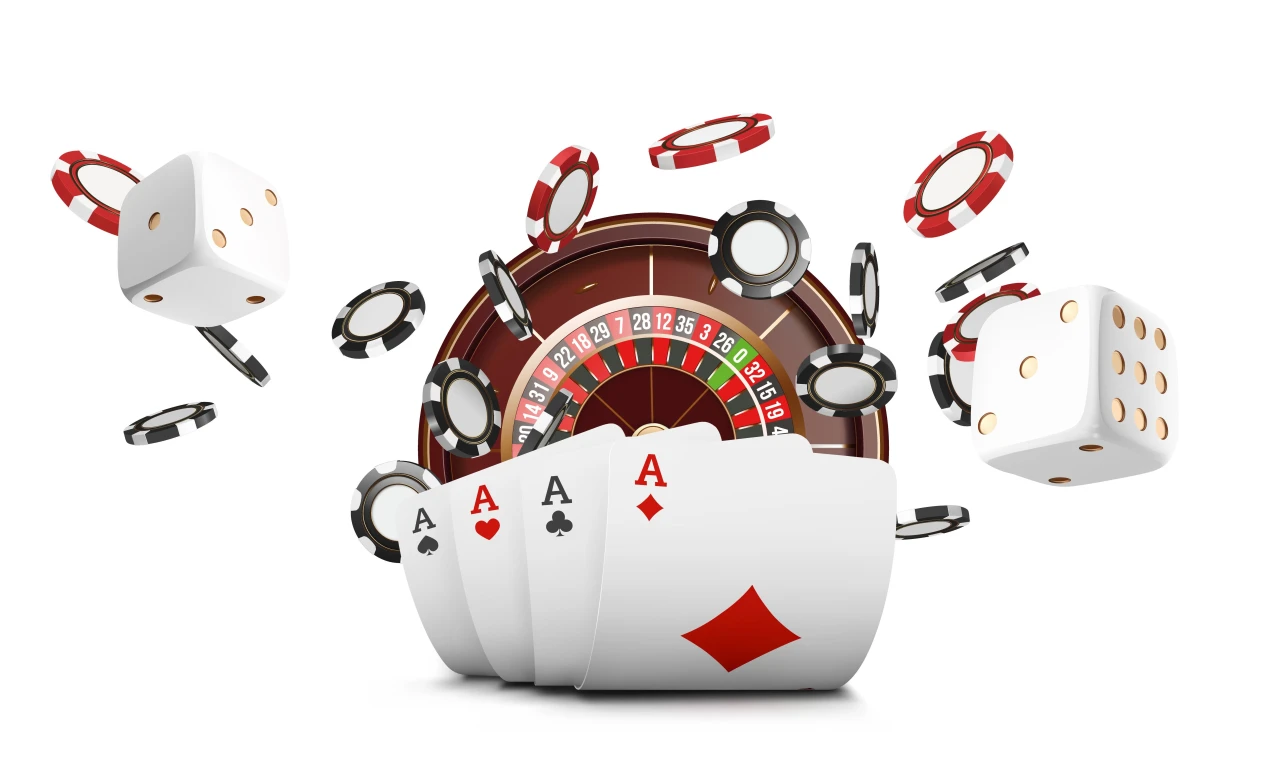Did you know that 87% of the Dutch population has gambled at least once? (Bieleman et al., 2011.) Gambling can be exciting and fun, however, there is always a chance that it leads to a gambling addiction. So when do you become a gambling addict and what exactly is a gambling addiction? At Connection SGGZ, we deal with addictions on a daily basis, including gambling disorder.
Gambling addiction and treatment

How do we define gambling addiction?
It is sometimes difficult to tell whether a problem really exists. The severity of a gambling addiction depends on how often and how much gambling takes place and what the consequences are. The thrill of either winning or losing money and the fact that a person often thinks they can improve their skills can quickly make a person want to gamble again and again.
Compulsive gambling is characterised by loss of control over your gambling behaviour. Additionally, gambling controls your life to a large extent because you spend a lot of time and money on the matter.
In our society, there are many different types of gambling. These include:
- casino games
- scratch cards
- lotteries
- slots
- online gambling, such as poker
- sports betting
Gambling can have a strong negative impact on your daily life, for example regarding work: if you choose gambling over your job. Or in relationships: you borrow money from family or friends and cannot pay back your debts. The consequences often have a great impact on your life and you might soon end up in a vicious circle.
Why choose Connection SGGZ addiction care?
- Our treatments are reimbursed by your health insurer
- Short waiting list
- Personalised and specialised treatment
- Working with recovery mentors
- Evidence-based treatment
- Custom aftercare programme
- Excellent family programme
- Rehab centres in the Netherlands and South Africa
Do you need help?
Gambling, online and traditional, is still gaining popularity
Gambling has had a magical appeal for thousands of years. The oldest six-sided dice dates back to about 3,000 B.C. and was found in Iraq.
Emperor Augustus did it, Napoleon loved it and Marie Antoinette could keep it up all night: playing for money, and we are not talking small amounts. From poor peasants to extremely rich royalty – throughout history, all kinds of people have been attracted to gambling as a quick and easy way to make money.
The ever-increasing popularity of gambling is reflected by a growth in consumption of almost 12 percent to 2.5 billion euros, from 2015 to 2018. In recent years, an increasing amount of money has been involved in the lottery and gambling industry. Production value increased by more than 11 percent to just over 2 billion euros from 2015 to 2018.
Production value of lotteries and games of chance *preliminary data

Why is gambling addictive?
1. Biological factors
Certain messenger chemicals in the brain, whose quantity is genetically determined, are more prevalent in problematic gamblers. Research states that genetic, neurocognitive and neurobiological factors constitute a vulnerability for the development of gambling issues. This vulnerability may promote the emergence and persistence of pathological gambling (Goudriaan & DeFuentes-Merillas, 2012).
2. Psychological factors
Several psychological factors are related to the emergence of gambling problems. Epidemiological studies show that pathological gamblers are more likely to experience psychological disorders and/or substance problems compared to people without gambling problems. Some key psychological mechanisms involved in the addictive potential of gambling:
- The irregular intermittent reinforcement of winning in gambling games, such as slot machines and roulette.
- The role of expectation (near misses).
- Cognitive illusions, such as excessive focus on winning (confirmation bias).
- A number of gaming mechanisms that are associated with higher addiction potential: a shorter payout interval, such as when playing slot machines and participating in casino games, has been found to be strongly associated with gambling problems. While gambling activities where there is a longer time between bet and outcome are hardly correlated with gambling problems, for example when participating in lotteries.
- The role of bets (the higher, the more addictive) and the illusion that you can influence the outcome of a game of chance (illusion of control), suggesting skills play a more important role than chance. (Goudriaan & DeFuentes-Merillas, 2012).
3. Social factors
Social factors influence both gambling participation and the chances of gambling becoming problematic. People living close to a casino and those living in deprived areas are more likely to develop gambling problems (Goudriaan & DeFuentes-Merillas, 2012). Greater accessibility to gambling venues, through laws and regulations, is also associated with a higher likelihood of developing gambling problems.
Finally, gaming addiction and gambling addiction might also be linked to each other. In recent years, we have seen that online games and gambling are not always offered separately. There is an increasing intertwining of game and gambling providers and mutual advertising of each other's products. In addition, games are sometimes very similar to real games of chance. Games sometimes contain gaming elements, such as loot boxes, and sometimes closely resemble games of chance. Another trend is that virtual items from games (e.g. skins) can be used as means of payment when participating in games of chance.

Symptoms of problematic gamblers
Do you think you might be a compulsive gambler or that one of your loved ones is struggling with gambling issues? Below is a list of symptoms that could indicate addiction:
- Always short of money, often borrowing money and not paying it back
- Denying financial problems caused by gambling.
- Constantly thinking about the next time you can play again.
- Reacting irritably to comments about gambling. The problem is denied or hidden.
- Neglecting work, school and relationships with your friends and family.
- You would like to cut down or stop gambling and have tried several times but your attempts fail time after time.
- Not believing in chance and gambling a lot and for stretched periods of time.
- Always trying to recoup your losses.
- Using gambling to escape from problems.
Gambling risks
Every addiction contains risks. Psychological dependence of gambling often leads to a disturbed relationship with the environment over work and personal relationships. Risks of gambling:
- serious social problems
- serious financial problems
- lying and cheating
- feelings of depression and despair
- feelings of guilt and shame
- criminal activities to obtain money
- social isolation and severe neglect. It is difficult to reconnect with the outside world. Feelings of loneliness and gloom are relieved with gambling, which creates a vicious cycle.
When you stop gambling, you might also experience the following withdrawal symptoms:
- headache
- restlessness
- fatigue
- tremors and perspiration
How do you cope if a loved one is a gambling addict?
What if your child, parent, partner, brother, sister, best friend or colleague is a gambling addict? How do you handle the situation? Being close to someone who is a gambling addict creates stress. You may feel guilty, angry or very lonely. It's okay to acknowledge that you are at the end of your tether. It is not easy to admit that you need professional support.
It is important to realise that you have no influence on the addict's behaviour. What you do control is how you deal with the situation. In fact, you can change your own behaviour and how you respond. Your aim is to get to a point where your life is no longer dominated by your loved one’s addiction and to break the vicious circle. The Connection SGGZ rehab centre is here to help you realise these targets. We have a special family programme in which we provide you with tools on how to cope with a gambling addict in your immediate environment.
Treatment programme in our South Africa rehab centre
At Connection SGGZ, we offer professional help for gambling addiction. We help our clients quit gambling in a responsible and committed way. If you apply to Connection SGGZ for help, you have already taken the most important step. Because we understand drug addiction very well and have a lot of experience treating it, we proceed respectfully and without prejudice. Through treatment at our rehab clinic in Eindhoven, Meerlo or South Africa, recovery from a gambling addiction is indeed possible. And the same applies if you are suffering from a poker addiction.
Depending on the scope and extent of the addiction, we focus on controlling your behaviour, overcoming the addiction and learning to prevent a relapse. Our Dutch and South African specialists have extensive experience with addiction and perfectly understand what you need. During the addiction assessment, we identify your needs and level of addiction. A tailor-made therapy plan is drawn up for you so you can start working on your recovery under the guidance of our professional staff.
Gambling addiction is a serious problem that requires professional support. You have to get back on track again, but this time without gambling. We are here to help you overcome your dependence. We have short waiting lists and are happy to make an appointment for an addiction assessment at short notice. Call +31 40 303 5023 now for help

What does gambling addiction treatment cost?
If you live and work in the Netherlands, all our treatments are reimbursed by your health care insurer, given the fact that Connection SGGZ holds a WTZa licence. The Accession of Care Providers Act act regulates the admission of care institutions. It checks whether the institution meets all the requirements regarding accessibility of emergency care, transparency in terms of management structure, presence of a supervisory board and a financial administration.
Because every Dutch person is insured for specialist mental health care, all our addiction programmes are covered by the health insurers. Are you a non-Dutch citizen or permanent resident? Please contact us via +31 40 303 5023. Because we believe that everyone is entitled to personal and specialist health care, we do not charge a personal contribution for treatment. All we ask from our clients is a willingness to tackle their addiction with full commitment.
How do we help our clients with their gambling addiction?
If you sign up for help with your gambling addiction, you have already taken the most important step. Since we understand gambling addiction and have experience with treating gambling addiction, our approach is respectful and unprejudiced. Through rehabilitation at our clinics in Eindhoven or South Africa, recovery from a gambling addiction is indeed possible.
Treatment of a gambling addiction is in many ways similar to that of substance addiction such as to drugs or alcohol. We offer tailored care, which may include the following components:
- Focus on our client's need for help and their motivation to achieve their goals.
- Psycho-education on the nature and characteristics of pathological gambling.
- Analysis to identify both triggering and sustaining factors of gambling. These factors largely determine the rehab programme and its sequence.
- Application of external behavioural measures to stop or control gambling in the short term. These measures include, for example, limiting the availability of money, having our client placed on a self-exclusion register for casinos or gambling venues, using internet gambling blockers to avoid online gambling and handing over finances to someone else. They also include increasing the rewards of pleasurable activities as an alternative to the reward value of gambling.
- Challenging 'gambling illusions' or irrational thoughts.
- Relapse prevention, aimed at training the client to recognise risky situations for relapse, such as social pressure, negative emotions (e.g. anxiety, depression and anger) and interpersonal conflicts. We provide appropriate strategies for dealing with problematic situations.
During an addiction assessment, we define your needs and level of addiction. A tailor-made therapy plan is drawn up for you to work with under the supervision of our professional staff.
Gambling addiction is a serious problem that requires professional counselling. You need to get back on track again, but without the behaviour you were addicted to. We will help you overcome your addiction: call +31 40 303 5023 to arrange an assessment interview.
Do you need help?
Is gambling addiction hereditary?
Gambling addiction can be inherited. However, it does not necessarily mean that you will become a gambling addict if one of your parents is or was, but there is probably an increased risk involved. For instance, research found that children of addicted parents had blunted physical stress reactivity: they produced less cortisol during stressful tasks compared to adolescents who did not have addicted parents (Evans, Greaves-Lord, Euser, Franken, & Huizink, 2013). It was also found that the heart rate of these adolescents was slower during the stressful tasks. As a result, they might think they could 'easily cope' with gambling and disregard the stress of adverse financial situations more easily.
Environmental conditions may reduce the effect of increased susceptibility.
Addiction can be labelled a 'family disease': This is because addiction not only affects the ones addicted, but also those who are close to them. That is why Connection SGGZ would also like to get in touch with the client's social system during the programme. We help family and friends with a special programme to learn to cope with the effects of addiction.
Gambling addiction as a disease
Scientific research has shown that in the onset and progression of addiction, parts of the brain are involved, such as the reward centre, memory and neo cortex. Quitting behaviour you are addicted to is therefore not at all simple because your own brain is being contradictory.
If gambling becomes a habit, if you can’t stop on your own anymore or if gambling is causing problems, it is time to seek our support. Our professional team at Connection SGGZ is there for you!
We help our clients quit gambling in a responsible and committed way. Our personal approach enables our clients to get back to living life to the fullest after their treatment.
